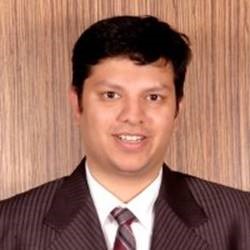Workshop #1
Title: Combined Heat and Power (CHP) for Critical Infrastructure Security & Resilience and Energy Savings
Abstract: Governments are increasingly becoming more concerned about the impact of natural disaster events on critical infrastructure. Combined heat and power (CHP) provides the prospect to improve critical infrastructure resiliency, diminishing the impacts of an emergency by keeping critical facilities running in uninterrupted electric or thermal service. CHP systems can be configured to meet the detailed reliability needs of diverse customers, and to offset the costs for electricity, thermal energy and traditional backup power. For this presentation, the Department of Energy’s Southwest CHP Technical Assistance Partnership (SW CHP TAP) will discuss CHP technologies and applications for government critical infrastructure facilities, including wastewater treatment plants, first responded facilities, hospitals and data centers. Further, the presentation will discuss the basics of working through the CHP project development process from early screenings to final commissioning of the facility, as well as the resources that are available from the SW CHP TAP to assist with implementing a CHP project.
Bio: Dr. Fanxu Meng is a Research Associate in Energy Production and Clean Energy Technology programs at Houston Advanced Research Center (HARC). He holds a Ph.D. from Texas A&M University and obtained his B.S. and M.S. from Tianjin University, all in Chemical Engineering. Dr. Meng performs basic and applied research and development in support of projects pertaining to energy production, clean energy, environmental monitoring and emission control. He has published 13 peer-reviewed papers and given 10 presentations in international conferences in the fields of energy and environment. He is a current member of the AIChE and SAE.
Workshop #2
Title: Using Simulation Studies to Optimize Your Ethylene Plant
Abstract: The petrochemicals boom has begun as the natural gas prices fell due to new technology boosted production from dense shale formations. Natural gas is both the raw material and fuel for petrochemical plants. By 2Q 2018, we will have additional 15.6 billion lb/yr ethylene production planned – translating to $16.5 billion investment in the form of new plants or upgrading the existing plants to utilize natural gas and to produce more ethylene.
This presentation provides how steady state and dynamic simulation services can be used to identify the bottlenecks, to retrofit the existing plants and to design the new plants for safer, smooth and optimum operations. Five most frequent applications are discussed to stress the need for simulation: Steam system, Compression system, Flare system, Optimization for various purposes and Control system for integration with other plants. In the last application, an example is presented where an ethylene complex is integrated with polyethylene production and the availability of each plant is highly dependent upon the control system for intermediate products (ethylene) and utilities and their back-ups.
In these examples, dynamic simulation has been used to verify the design and investigate various control strategies. The steady state simulation and optimization tools have been used to establish the balance, set the targets, decide the feedstock/ operating conditions and to maximize the profit. To take the full advantage of these simulation models, dynamic simulation model can be easily evolved into full multipurpose operator training simulators and the optimization models can be involved into real time optimization application.
Bio:  Dhaval Dave, Senior Consultant, Schneider Electric Software
Dhaval Dave, Senior Consultant, Schneider Electric Software
Dr. Dhaval Dave has 14 years of experience in simulation and optimization in a variety of industries. Dr. Dave is currently working with Schneider Electric as a Senior Consultant in the Design, Simulation and Optimization group. His prior experiences include positions with British Petroleum and Aspen Technologies. He holds a PhD in chemical engineering from the University of Manchester, UK and an M.Tech in chemical engineering from Indian Institute of Technology - Kanpur. Dr. Dave is a Houston native and his research interests include Dynamic Simulation and Real Time Optimization.
- Log in to post comments
